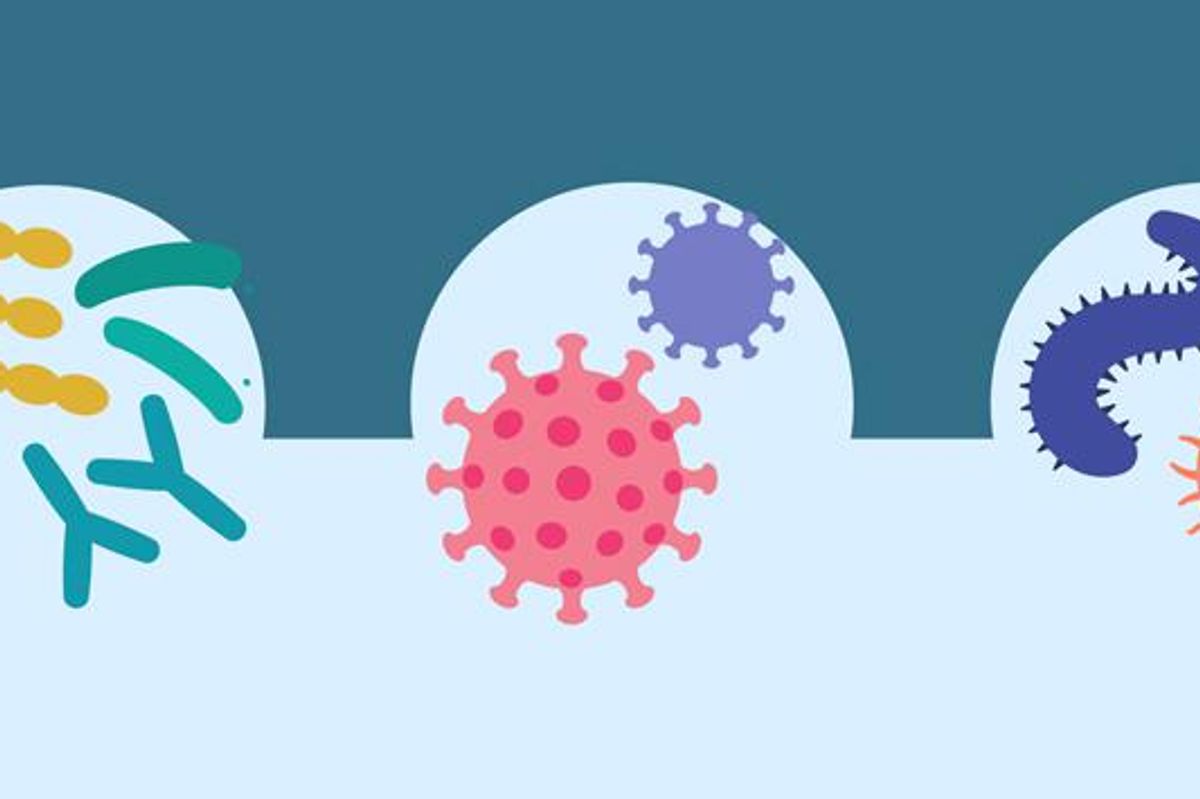What is antimicrobial resistance?
Microbes are tiny germs that cause all kinds of infections. They include:
- Bacteria
- Viruses
- Parasites
- Fungi
Microbes evolve and sometimes the drugs that kill microbes stop working. This is called antimicrobial resistance or AMR.
When germs become resistant to more than one drug, they’re called superbugs.
Antibiotic resistance = one type of AMR
If antibiotics are taken too often or incorrectly, bacteria can become resistant to them.
Antibiotic resistance is dangerous because infections that used to be easy to treat can become more serious — even deadly — without antibiotics
Antimicrobial resistance is more dangerous for people with cancer
It’s especially easy for people with cancer to get infections because cancer treatments can make it harder to fight infection.
Many cancer treatments keep the immune system from working well, so antibiotics are an important part of making cancer treatments safe. If antibiotics stop working, some cancer treatments could be too dangerous to prescribe.
People with cancer are 3x more likely to die from an infection than people without cancer.
Antimicrobial drugs, such as antibiotics, antiviral medications and antifungal medications, are key to preventing and treating infections. But more than 1/4 of infections in people with cancer were found to be resistant to standard antibiotics.
88% of cancer patients who died from an infection they got in the hospital were infected with a superbug.
Cancer patients infected with superbugs were more likely to die than cancer patients with other types of infections.
95% of cancer specialists surveyed in 2020 said they’re worried about superbugs.
Infections are most common in people with these types of cancer:
- Prostate cancer
- Breast cancer
- Kaposi’s sarcoma (cancer found in the skin or membranes of the digestive tract)
- Liver cancer
- Leukemia
People with basal cell neoplasms, a type of skin cancer, had the highest risk of death from infections.
Approximately half of the deaths in people with blood-related and solid tumors are related to an infection.
Symptoms of infection
A person with cancer is most at risk for infection when their white blood cell count is low. Typically, white blood cells are lowest between one and two weeks after finishing a dose of chemotherapy.
Watch out for these common symptoms of infection:
- Fever
- Chills and sweats
- New or different cough
- Sore throat
- Shortness of breath
- Congestion
- Diarrhea
- Vomiting
- Stiff neck
- Pain when you pee
- Peeing more often
- Vaginal discharge or irritation
- Redness, soreness or swelling anywhere, especially where you’ve had surgery or a port
- Pain
If you have any of these symptoms, call your healthcare provider right away.
This resource was created with support from Pfizer Inc.
- Q&A: How Fighting Superbugs Could Help Prevent the Next Pandemic ›
- How Antimicrobial Resistance (AMR) Complicates Other Health Conditions ›
- I Contracted a Superbug That’s a Top Public Health Threat — And It’s More Common Than You Think ›
- Fast Facts: What You Need to Know About Antimicrobial Resistance ... ›
- Clinically Speaking: Important Questions to Ask About Antimicrobial ... ›
- The Global Threat of Superbugs - HealthyWomen ›








